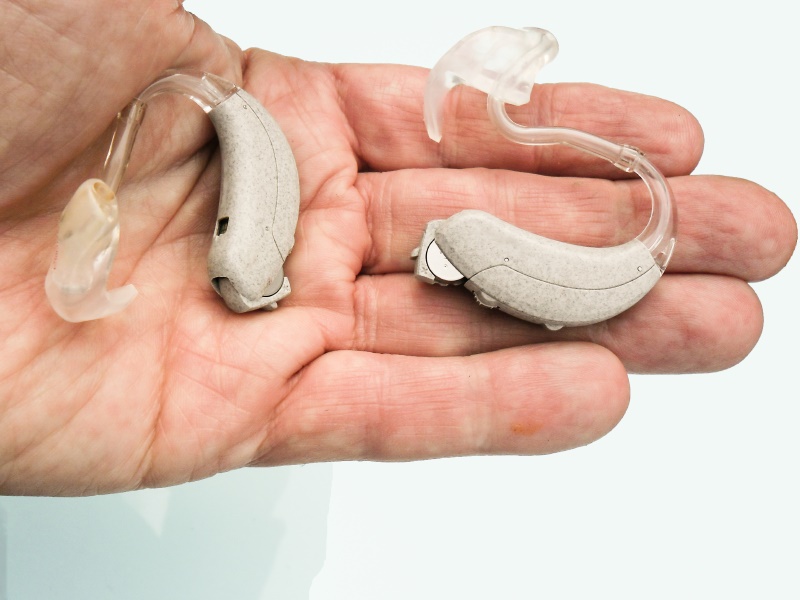
To keep your hearing aids working properly for years to come, you need to learn proper care and maintenance. And though it may seem like an additional burden, with the right approach your hearing aid care will become easy and automatic.
The secret is building effective habits.
If you incorporate your hearing aid care into your everyday and nightly routines, before long it won’t feel like any extra work at all.
Here are some tips for the day-to-day care of your hearing aids (which your hearing specialist will also go over with you):
Clean your hearing aids daily – Make an effort to incorporate your hearing aid cleaning into your nightly routine, so it will become as automatic as brushing your teeth. This is critical because daily hearing aid cleaning can minimize the build-up of earwax, dirt, and dust into the different parts of the hearing aid, which can cause distorted sound with time.
You’ll want to clean your hearing aid with a smooth, dry cloth, while avoiding any liquids that could destroy the hearing aid electronics. Consult with your hearing professional for specific guidelines on cleaning each kind of hearing aid.
You may also prefer to consider investing in a hearing aid sanitizer, which uses ultraviolet light to safely and thoroughly kill dangerous pathogens. Hearing aid cleaning kits are also obtainable with all of the instruments you’ll need to safely clean the device without causing harm to the electronics.
Always check the batteries – Hearing aid batteries should always be examined and replaced regularly to ensure peak hearing aid operation. Consider using a battery tester in the morning to ensure you have adequate power for the rest of the day, and keep a spare set of batteries on hand.
Before bedtime, when your hearing aids are not in use, shut them off and store them in a cool, dry spot with the battery door open.
Store your hearing aids in a secure place – In regard to storage, you’ll want to remember three things:
- Keep the hearing aids away from moisture. In other words, storing your hearing aids in the bathroom is probably a bad idea.
- Avoid subjecting the hearing aids—and hearing aid batteries—to temperature extremes. You’ll want to store your hearing aids in a cool, dry place.
- Avoid storing your hearing aids out in the open, where they can become damaged.
We suggest keeping your hearing aids in a case or drying kit inside the drawer of a bedroom side-table. This will defend the hearing aids from moisture, temperature extremes, and damage from being bumped off the table.
Also, remember to remove your hearing aids prior to showering, swimming, or using a hair dryer or hair spray.
Maintain ear hygiene – Even though earwax has many helpful properties, such as protection and lubrication of the ear canal, it can wreak havoc on hearing aids. As it becomes wedged within the hearing aid hardware, sound can become distorted.
Ensure that you’re keeping up appropriate ear hygiene, and if you have excessive earwax, think about scheduling a consultation with a professional.
Properly put in your hearing aids – While inserting your hearing aids, lean over a table or soft surface in case that the hearing aids fall. Hearing aids come with fragile electronics, so a fall on a hard surface could result in significant damage.
Even with scrupulous cleaning and maintenance, after a while the hearing aid will call for more thorough cleaning or repair.
To assure that you consistently receive the best sound possible, we advise having your hearing aids professionally cleaned by a hearing professional at the least twice a year.
Hearing care professionals will provide you with a deep cleaning, a tune-up, and will on occasion replace parts. Staying on top of this periodic maintenance will expand the life of your hearing aids and will ensure that you get the optimal sound.